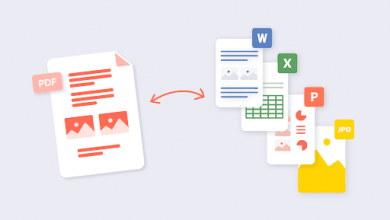How Online Background Checks Help in Fraud Prevention

Defining the Purpose of Background Verification
Background verification is a process that confirms an individual’s identity and assesses their trustworthiness. This involves looking into their past to identify any history of fraud, delinquency, or criminal behavior. The primary goal is to ensure the integrity of the hiring process and protect the company from potential risks.
Key Areas Covered in a Comprehensive Check
A thorough background check typically examines several key areas. These include employment and education history, criminal records, and right-to-work status. Financial history and motor vehicle records might also be reviewed, depending on the role. Social media presence is increasingly scrutinized as well.
Regulatory Frameworks Governing Background Checks
Background checks are subject to various regulations designed to prevent discrimination and ensure data protection. In the United States, for instance, the Fair Credit Reporting Act (FCRA) sets guidelines for collecting and using consumer reports. Companies must adhere to these frameworks when conducting background verification to remain compliant.
It’s important to remember that while background checks are a powerful tool, they are not foolproof. Sophisticated fraudsters can sometimes find ways to circumvent standard checks. Therefore, a multi-layered approach to verification is often the most effective strategy.
Preventing Fraudulent Hires Through Diligence
The Impact of Fraudulent Applications on Businesses
Fraudulent applications pose a significant threat to businesses, especially in today’s hiring landscape. When candidates falsify information on their resumes or during interviews, they can gain access to sensitive company data, financial resources, or critical operational systems. This breach of trust can lead to substantial financial losses, damage to a company’s reputation, and disruption of normal business operations. A single fraudulent hire can have cascading negative effects throughout an organization.
Consider the case of Veronica Theriault, who secured a high-paying role as Chief Information Officer by fabricating her educational and employment history. She even used a photo of a supermodel on her professional profile. During her brief tenure, she caused significant financial harm and was later convicted. This example underscores the real-world consequences of not properly vetting applicants. It’s estimated that a substantial percentage of job applications contain verifiable false information, making diligent background checks a necessity, not a luxury.
Analyzing Red Flags in Candidate Information
Identifying red flags during the background check process is key to preventing fraudulent hires. These warning signs can appear in various forms, from inconsistencies in employment dates and job titles to vague descriptions of responsibilities or unusual gaps in work history. It’s also important to look out for overly generic or impressive-sounding qualifications that lack specific details or verifiable achievements. Paying close attention to these details can help uncover potential deception before it impacts your company.
Some common red flags include:
- Unexplained gaps in employment history.
- Frequent job changes without clear progression.
- Vague or evasive answers during interviews.
- Inconsistencies between the resume and references.
- Lack of verifiable professional licenses or certifications.
When a background check reveals information that doesn’t align with what the candidate presented, it warrants further investigation. Ignoring these signals can be a costly mistake.
The Importance of Verifying Professional Credentials
Verifying professional credentials goes beyond simply checking a degree or a certification. It involves confirming the authenticity of qualifications, licenses, and past employment claims. For roles requiring specific expertise, such as in finance or technology, this verification is paramount. Failure to confirm credentials can lead to hiring unqualified individuals who may not only underperform but also pose a risk to the organization.
For instance, a candidate might claim to have a specific certification, but without verification, there’s no guarantee they actually possess it or that it’s current. Similarly, past employment claims need to be corroborated with previous employers. This due diligence helps ensure that the individual hired truly has the skills and experience they claim, thereby reducing the risk of hiring someone who obtained their position through fraudulent means. This careful verification process is a cornerstone of preventing fraudulent hires.
Fortifying Your Company with Verification Processes

Ensuring Applicant Qualifications for Remote Roles
With more people working from home, checking who you’re hiring is super important. It’s not just about seeing if they can do the job; it’s about making sure they’re honest. Background verification helps confirm that someone actually went to that school or worked at that company they listed on their application. This is especially true for remote roles where you can’t just see them in person every day. It’s a key step to prevent fraud before it even starts.
Establishing Fair and Ethical Hiring Standards
Running background checks helps keep things fair for everyone. It means you’re making decisions based on real facts, not just gut feelings or what someone says. This process upholds ethical standards in hiring. When you have a solid verification process, it builds trust between you and your new hires. It shows you care about integrity and want to build a responsible team.
Identifying Potential Risks in Candidate Histories
Looking into a candidate’s past can reveal a lot. You might find things like past job issues or even criminal records that could be a problem. Identifying these potential risks early on is a big part of preventing fraud. It’s like a pre-emptive strike against future trouble. This diligence helps protect your company’s assets and reputation.
A solid background check process is a shield against potential threats, helping to maintain a secure and trustworthy work environment, especially in today’s distributed workforce.
Here’s what a good verification process can look like:
- Confirming educational degrees and certifications.
- Verifying previous employment history and job titles.
- Checking for any relevant criminal records.
- Validating professional licenses where applicable.
Businesses can lose a lot of money due to employee fraud. For instance, a report from the Association of Certified Fraud Examiners suggests companies lose about 5% of their yearly income to fraud. Background checks are a direct way to cut down on these losses. They help screen out people who might have a history of dishonest behavior. This proactive step is vital for financial health.
Mitigating Financial and Reputational Risks
Fraudulent activities can hit a company hard, not just in the pocketbook but also in how people see the business. When employees engage in dishonest acts, the financial losses can be huge. Think about embezzlement or data breaches – these aren’t small problems. They can drain company accounts and lead to massive payouts or fines. Beyond the direct money loss, the damage to a company’s reputation can be even more lasting. Customers lose trust, partners might pull away, and it becomes much harder to attract new business. This is why being smart about who you hire is so important.
Quantifying Losses Due to Employee Fraud
It’s tough to put an exact number on it, but fraud costs businesses billions every year. Reports show that a significant percentage of job applications contain false information, and many fraudsters have no prior criminal record that would have flagged them. This means that even with some checks, companies can still end up hiring people who later cause harm. For instance, if someone in accounts payable decides to skim money, or an IT person sells customer data, the financial fallout can be devastating. These aren’t just isolated incidents; they represent a real threat that needs active management.
Quantifying Losses Due to Employee Fraud
Businesses face staggering losses from employee fraud annually. These losses aren’t just about stolen cash; they include the cost of investigations, legal fees, and the downtime caused by disruptions. A single incident of embezzlement or a major data breach can cost millions, impacting a company’s bottom line for years. It’s a serious issue that requires proactive measures to prevent.
Curbing Embezzlement and Data Breaches
Background checks play a direct role in stopping embezzlement and data breaches before they happen. By verifying a candidate’s history, especially for roles involving financial access or sensitive information, companies can identify individuals with a past propensity for such crimes. A clean record doesn’t guarantee honesty, but a history of financial misconduct or data-related offenses is a major red flag that background checks can uncover. This due diligence helps to keep these risks out of the organization.
Addressing Identity Theft in the Hiring Process
Identity theft is a growing concern, and it can manifest in the hiring process too. Someone might use a stolen identity to get a job, potentially to access company systems or commit financial fraud. Thorough ID verification as part of a background check process confirms that the person applying is who they claim to be. This simple step can prevent a lot of future headaches and protect the company from being unknowingly complicit in identity fraud. It’s a basic but vital part of protecting your business.
Leveraging Modern Tools for Enhanced Screening
Utilizing Open Source Intelligence (OSINT) Techniques
Open Source Intelligence, or OSINT, is about digging into publicly available information. Think of it as advanced online detective work. It uses free online databases and search engines to find extra details about individuals. This can range from simple Google searches to more complex research frameworks. OSINT helps build a fuller picture beyond just the resume.
OSINT techniques are vital for uncovering hidden risks. They can reveal inconsistencies or provide context that traditional methods might miss. For instance, a quick OSINT check might show a candidate’s involvement in online forums related to their industry, or perhaps something less relevant. It’s about gathering data from sources anyone can access, but doing so systematically.
This approach is particularly useful for remote hires where in-person verification is limited. It allows for a broader sweep of a candidate’s digital footprint. The goal is to identify any potential red flags early in the hiring process. This proactive stance is key to fraud prevention.
The Power of Reverse Email and IP Address Lookups
Reverse email and IP address lookups are powerful tools in the modern screening arsenal. A reverse email lookup can provide a wealth of information based on just an email address. It can link to social media profiles, identify associated usernames, and even flag suspicious email domains. This helps verify if the email provided is legitimate and connected to the candidate’s claimed identity.
Similarly, IP address lookups offer insights into a candidate’s online activity. They can reveal the general location from which a candidate is accessing your systems or applying for a job. This can be particularly telling if the IP address suggests the use of a VPN or a location that contradicts the candidate’s stated address. Such discrepancies warrant further investigation.
These tools are not about invasion of privacy but about due diligence. They help confirm the authenticity of the information provided. By cross-referencing data points, companies can build a more accurate profile of applicants. This is a smart way to identify potential deception before it leads to problems.
How to Manage Online Reviews Using Social Profiler
Social profilers are tools designed to aggregate and analyze a person’s online presence. They can pull information from various social media platforms, professional networks, and other public websites. This gives hiring managers a consolidated view of a candidate’s digital footprint.
Companies can also use SocialProfiler to manage online reviews using Social Profiler, ensuring they can track feedback, respond promptly, and protect their brand reputation. It’s a way to see how a person presents themselves online.
Using a social profiler can help verify application details and assess a candidate’s professional reputation. It can also highlight potential red flags, such as unprofessional behavior or inconsistencies with their stated experience. It’s important to use these tools ethically and in compliance with privacy regulations. The aim is to gain insight, not to pry.
When managing online reviews and social media presence, consistency is key. A social profiler can help identify if a candidate’s online persona aligns with their professional background. This is an important step in building trust and mitigating risks associated with fraudulent applications.
Specific Checks for Identifying Deception
The Role of Criminal Record and ID Verification
When bringing new people into your organization, checking their past is a smart move. This includes looking into criminal records and verifying their identity. It’s about making sure the person you’re hiring is who they say they are and hasn’t been involved in serious wrongdoing. This step helps prevent hiring individuals who might pose a risk to your company’s assets or reputation. A clean criminal record and confirmed identity are foundational for trust.
Verifying a candidate’s identity is a critical first step in preventing fraud. Without proper ID checks, you open the door to identity theft and fraudulent applications. This is especially true in remote hiring scenarios where in-person verification isn’t possible. Criminal record checks, on the other hand, provide insight into past behavior that could indicate a propensity for dishonest actions. These checks are not about judging past mistakes but about assessing potential future risks.
It’s important to remember that background checks are just one part of the puzzle. They should be used in conjunction with other screening methods. However, for identifying deception, these specific checks are quite direct. They help filter out individuals who might be trying to hide a problematic past. The goal is to build a team of trustworthy individuals, and these checks are a key part of that process. They help in the overall effort to prevent fraud.
Analyzing Social Media Presence for Red Flags
In today’s connected world, a person’s online footprint can reveal a lot. Analyzing social media presence can uncover inconsistencies or behaviors that might be red flags. This isn’t about spying, but about gathering a more complete picture of a candidate. Look for patterns of negativity, unprofessional conduct, or associations that don’t align with your company’s values. A consistent online persona that matches their application is generally a good sign.
Social media can offer insights that traditional background checks might miss. It can highlight potential issues like a history of making discriminatory remarks or engaging in risky behavior. Observing how a candidate presents themselves online can be as telling as their resume. It’s about spotting potential deception before it impacts your business. This type of analysis helps in identifying individuals who may not be upfront about their past or their character.
When reviewing social media, focus on publicly available information. Look for patterns over time rather than isolated incidents. If a candidate’s online persona seems drastically different from their professional application, it warrants further investigation. This approach to background checks helps in identifying deception and ensuring a better fit for your team. It’s a way to spot potential issues early on.
Assessing Financial History Through Credit Checks
For roles that involve financial responsibility, a credit check is often a necessary part of the background screening process. This check looks at a candidate’s history of managing debt and their overall financial behavior. It can reveal patterns of irresponsibility or financial distress that might make someone a risk for certain positions. A history of financial instability can sometimes be linked to increased risk of fraud.
Credit checks are not about judging someone’s financial situation but about assessing their reliability and trustworthiness, especially when handling company money or sensitive financial data. It helps to identify potential vulnerabilities that could be exploited or lead to unethical behavior. This type of check is particularly relevant for roles in accounting, finance, or management.
It’s important to conduct credit checks ethically and in compliance with all relevant laws and regulations. The information obtained should be used solely for the purpose of evaluating a candidate’s suitability for a specific role. By understanding a candidate’s financial history, businesses can make more informed decisions and mitigate risks associated with financial misconduct. This assessment is a key part of identifying deception in sensitive roles.
Building Trust and Responsibility in the Workforce
Rebuilding Trust with Remote Employees
Remote work has changed how we do business. It offers flexibility but also new challenges. Background checks are key to building trust with employees you don’t see every day. When a company does its homework, it shows employees they are valued and that the company is serious about its team. This careful approach helps create a reliable workforce, which is important for any business, especially with people working from different locations. A solid background check process helps rebuild trust.
Fostering a Culture of Honesty and Integrity
Creating an honest workplace starts with hiring the right people. Thorough background investigations, like checking criminal records and references, can help stop fraud before it starts. It’s not just about the initial check; it’s about making honesty a core value. When everyone knows that integrity matters and that there are checks in place, it encourages responsible behavior. This focus on honesty helps protect company assets and makes the workplace safer for everyone involved.
The Ongoing Importance of Employee Monitoring
Background checks aren’t a one-time thing. Keeping an eye on employees, especially those in sensitive roles, is important for ongoing security. This doesn’t mean constant surveillance, but rather having systems in place to catch issues early. Regular reviews and staying aware of potential risks help maintain a trustworthy environment. It’s about making sure that the trust built during hiring continues throughout the employee’s time with the company. This continuous effort is vital for preventing fraud.
Wrapping Up: Staying Ahead of Fraud
So, when you look at it all, doing these background checks really seems like a smart move for any company. It’s not just about checking boxes; it’s about building a team you can count on and keeping your business safe from a lot of potential problems. With more people working remotely these days, it’s even more important to know who you’re letting into your company. Using modern tools to check up on folks can catch a lot of issues before they become big headaches, saving you money and a lot of trouble down the road. It’s a good way to make sure everyone’s on the level and that your business stays on solid ground.

Source: How Online Background Checks Help in Fraud Prevention




